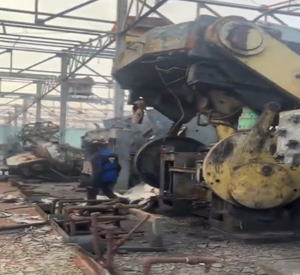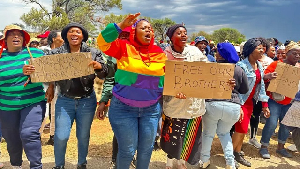I am writing you this epistle with mixed feelings, Nana. Do not worry, you will get to know why as we go on. Agyaaku being a farmer, you know how important NPK is for the growing of crops and rearing of animals.
And this is common knowledge to most people who are related to agriculture. But what is NPK in this context? You asked? Take it easy, Nana. We are pounding the fufuo so please hold on with the soup.
Nana I know you have heard about the current coronavirus, christened COVID-19, and how it is rampaging the whole world. As Lucky Dube puts it in his song titled Crazy World, ‘‘people are dying like flies everyday’’, because of COVID-19. This virus has been able to almost shut the whole world down.
I will not border you so much about the nitty gritties of covid 19 for now since you might have heard a lot about it already. By now I can imagine you are wondering what correlation is being drawn between the virus and NPK. Let us keep on, Agyaaku, but do not forget the lockdown that came along with COVID-19.
All over the world, solidarity, hospitality and kind-heartedness are being shown by people to the needy in society. Ghanaians have not been an exception. Adequate care has been given to the needy in Ghana, especially those who were affected by government’s lockdown of some parts of the country.
From traditional rulers, through priests, imams and famous persons to government itself, the Ghanaian in us has been well expressed towards the COVID-19 induced needy. Food, shelter and sanitary items have been adequately distributed to our affected citizens, with rice, tomato puree and cooking oil taken centre stage.
The gesture is very commendable. It gives me a feeling of joy and hope even as we are faced with uncertainties and gloom presented by the virus. However, in this commendable gesture lies a problem, Nana. Take a sip of water and let us continue.
Agyaaku, in agricultural science, NPK stands for nitrogen (N), phosphorus (P) and potassium (K). Yes potassium is K. It is derived from its scientific name ‘kalium’. These elements are needed in right proportions for optimum growth and fruition of various crops. Their absence or inadequate proportions when present, affects yields, especially if not corrected at the appropriate time during the crop’s growth.
For maximum yields, you need to make these elements available if they are absent, or top them up in case they are there but in inadequate quantities. So how do these salient elements connect to Ghana’s economy in this covid 19 situation, Nana?
Nana all those who have been distributing these relief items do not produce them. They bought them. But where were these rice, cooking oil and tomato puree or paste sourced or bought from? Most are not sourced from Ghana, primarily. And that gives me a feeling of worry.
But Nana, Ghana has its own NPKs when it comes to these 3 items widely distributed to the needy.
Nobewam in the Ashanti region represents our ‘N’. Nobewam and its environs have the capacity to produce a lot of inland valley rice (including Jasmine rice). Same can be said of places like Ohiamadwen and Benkyema Nkwanta in the Western region, as well as Afife in the Volta region. There are other places in Ghana that are also suitable for the production of both inland valley and upland rice. So Nana, it would have done our economy good if the many thousands of kilograms of rice distributed in this lockdown period had been sourced from Ghanaian rice producers.
It may not be the time to grow and harvest rice immediately to support the needy. But it’s surely not late to consider growing our own rice to feed ourselves when covid 19 is over.
Our ‘P’ is represented by Pwalugu in Northern Ghana. Agyaaku, you get what I mean? The Pwalugu Tomato Factory was set up by our first President. It is supposed to process tomatoes grown in Ghana, including Akomadan and Techimantia, for local consumption, and export if possible. Thousands of kilograms of tomato puree have been distributed to our affected citizens.
This is out of the millions of kilograms we import every year with millions of US dollars into the country. Post-covid 19, we should look at making the Pwalugu Tomato factory, renamed Northern Star Tomato Processing Factory, work. It will do our economy a lot of good than importing tomato puree and paste from elsewhere.
Nana, I guess you are thinking about what K will be. No, it is not Oseikrom, Agyaaku. Kusi in the Eastern region presents us with our ‘K’. Kusi has an institution dedicated for oil palm research. There are lots of other oil palm plantations in and around Kusi, as well as Kade (also in the Eastern region). There are other such plantations around the country too.
There are plantations of coconuts and groundnuts also in the country. All these can be processed into cooking oils to meet our demands for such oils. When COVID-19 is over, we should look at it and wean ourselves off importing such oils into Ghana. That will give our economy the needed ingredients to grow well.
Thus, Agyaaku, as we continue to unravel how to scale this COVID-19 hurdle, we can keep on catering for the needy and ourselves by keeping up with the current sources. But post-COVID 19, we should do more with local production of rice, cooking oil and tomato puree by making use of our NPKs, viz., Nobewams, Pwalugus and Kusis.
The source of these items enumerated herein will determine whether we are providing the salient elements for Ghana’s economy to grow.
Mesan aba biem, Nana!!!
Opinions of Tuesday, 21 April 2020
Columnist: Clement Boateng



















